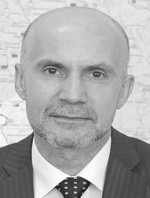Academic Physical Education discipline: rating correlations of qualitative components of education process
Фотографии:
ˑ:
Fizicheskaya kultura: vospitanie, obrazovanie, trenirovka №1-2017, pp.74-76
UDC 796.011.3
Dr.Sc.Techn., Professor A.D. Plutenko1
Dr.Hab., Professor A.V. Leyfa1
Associate Professor, PhD T.A. Yuryeva1
1Amur State University, Blagoveshchensk
Efforts to find regularities in the qualitative factors of influence on the education process efficiency in the academic Physical Education discipline are always limited by the question whether or not the common statistical methods are applicable for the education and training process study purposes. Correlations of many poorly measurable rates including the physical activity, health, motivation, knowledge quality rates – may be found only by special analytical tools. The study of the professionally pivotal physical activity and health systems applicable to the students of non-physical-education universities was designed to find and apply a set of reasonable statistical methods to rate correlations of the qualitative components of the education system. Based on analyses of the available reference literature on the subject, we outlined the most promising statistical methods to rate the correlations of the qualitative components of the education system pivotal for the physical fitness building process in the academic Physical Education discipline under a classical university curriculum.
The study data and analyses showed the need in an integrated model of the academic physical activity being designed with due consideration for the physical, intellectual, social and psychological development components viewed as the key constituents of the professional competence and fitness building process.
Keywords: physical activity, physical Education, statistical methods, qualitative aspects, physical fitness building system.
References
- Zheleznyak Y.D., Petrov P.K. Osnovy nauchno-metodicheskoy deyatelnosti v fizicheskoy kulture i sporte. Ucheb. posobie dlya stud. vyssh. ped. ucheb. zavedeniy [Fundamentals of scientific and methodological activities in physical education and sports. Study guide for university students]. Moscow: Akademiya, 2002, 264 p.
- Konyukhova G.P., Britvina V.V. Matematicheskaya statistika v fizicheskoy kulture [Mathematical Statistics in Physical Education]. Teoriya i praktika fiz. kultury, 2013, no.11, p. 60.
- Leyfa A.V. Teoreticheskoe obosnovanie i otsenka komponentov «individualnoe zdorovye» i «fizicheskaya aktivnost» v strukture professionalnoy gotovnosti studentov vuzov (na primere spetsialnosti «sotsialnaya rabota») [Theoretical substantiation and evaluation of components "individual health" and "physical activity" in structure of university students' professional fitness (case study of "social work" speciality)]. Pedagogiko-psikhologicheskie i mediko-biologicheskie problemy fizicheskoy kultury i sporta, 2010, no. 1 (14), pp. 57-64.
- Leyfa A.V., Yuryeva T.A., Chalkina N.A. Pedagogicheskie usloviya formirovaniya kompetentsii primeneniya kachestvennykh i kolichestvennykh metodov issledovaniya v protsesse professionalnoy podgotovki sotsialnykh pedagogov v vuze [Pedagogical conditions of formation of competence of use of qualitative and quantitative research methods during vocational training of social teachers]. Vektor nauki Tolyattinskogo gosudarstvennogo universiteta. Seriya: «Pedagogika, psikhologiya», 2013, no. 1 (12), pp. 133-137.
- Yuryeva T.A., Filimonova A.P., Chalkina N.A. Statisticheskaya otsenka svyazi mezhdu kachestvennymi priznakami v pedagogicheskikh issledovaniyakh [Statistical evaluation of link between quality attributes in educational research]. Vestnik Amurskogo gosudarstvennogo universiteta. Seriya: «Estestvennye i ekonomicheskie nauki», 2014, no. 65, pp. 11-16.



 Журнал "THEORY AND PRACTICE
Журнал "THEORY AND PRACTICE